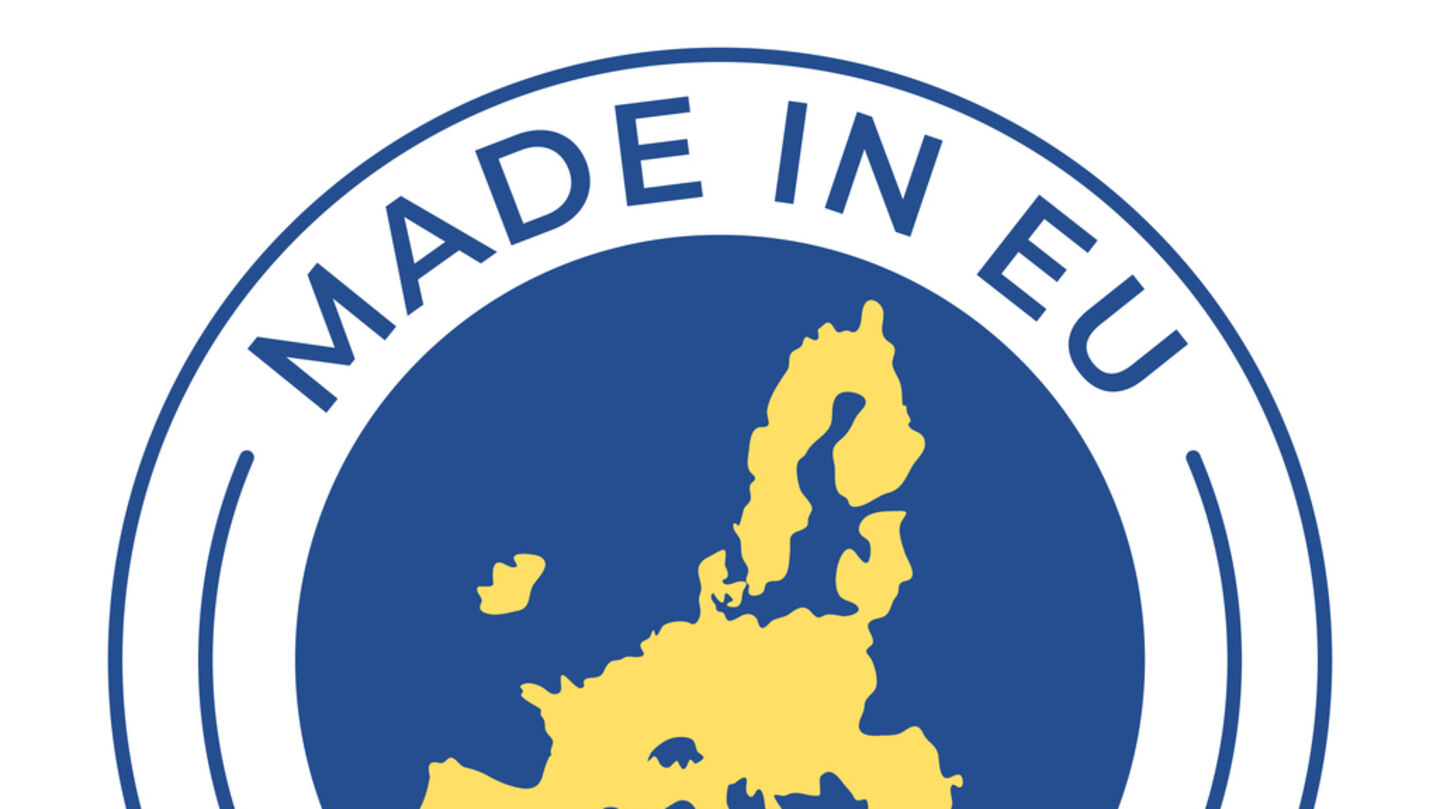
What will the chemical industry look like in 2040?
Geopolitical developments and the climate crisis are forcing a shift in approach
While the Netherlands initially wanted to phase out its chemical industry, geopolitical unrest is forcing a shift. ‘Made in Europe’ is now more important than ever. Three experts with backgrounds in science, government, and business outline the future of chemistry in a country that wants more sovereignty, but also a livable climate.
The climate crisis has led us to take a more critical look at industries that consume a lot of energy or produce emissions. The chemical industry is a leader in both areas. Yet, now that there is unrest on the world stage, we want to preserve the chemical industry. How should the Netherlands achieve this? Cursor asked Mark Boneschanscher of TU/e, Nienke Homan of the Association of the Dutch Chemical Industry (VNCI), and Mark Schmets of the Ministry of Climate and Green Growth.
The geopolitical tension causes products made in Europe to be favored over others. Reducing dependence on countries outside Europe also offers an opportunity to retain the chemical industry. However, it must change, and with a focus on the climate. Therefore, the government has met with Dutch industry to set targets for sustainability and the transition to CO2 neutrality by 2050.
In terms of energy consumption, the industry as a whole is responsible for 45 percent of all use in the Netherlands. The chemical industry accounts for approximately 60 percent of this.
Looking at emissions, one third of all CO2 emissions in the Netherlands come from industry, another third of which comes from the chemical industry. The next worst-performing sector is the mobility sector, accounting for 20 percent of emissions. This is precisely due to the chemical products in this sector: fossil fuels.
ARRRA cluster
The impact of the chemical industry is therefore substantial, but before we look at its future, it is important to explain its history and how it became such a large part of our economy.
"The chemical industry in the Netherlands is quite old," says chemist Mark Boneschanscher, dean of the Department of Chemical Engineering & Chemistry (CE&C) at TU/e. It is part of a cluster that extends far beyond the Netherlands. The ARRRA cluster: Amsterdam, Rotterdam, the Rhine-Ruhr region, and Antwerp. It's the largest industrial cluster in Europe.
A stunning 95 percent of what you see around you involves some kind of chemistry, says Nienke Homan, chair of the Association of the Dutch Chemical Industry (VNCI). "Think of the paint on your table, the lamp above it, or the screen you're looking at."
Groningen gas
"In the Netherlands, it's often said that 'the chemical sector is here because of the cheap Groningen gas, but that's not true; we already had the chemical industry before gas drilling began," says Boneschanscher. The companies DSM (1902), Shell (1907), and Organon (1923) are examples of this.
The real growth of these chemical companies stemmed from the First World War. Only then did the Netherlands realize how dependent it had become on foreign countries for the import of fertilizers, steel, and basic chemicals for explosives, for example. "That situation bears many parallels with the times we live in now."
Moreover, the Netherlands is strategically located as a gateway to Europe. It has a wide coastline, several ports, and pipelines extending throughout Northwest Europe, enabling the countries there to be supplied with materials and raw materials.
The figures
The Netherlands is the fourth-largest chemical producer in Europe and the tenth-largest in the world. There are approximately 430 chemical production sites in the Netherlands. Annual revenues are approximately 87 billion euros, making the chemical industry responsible for 2 percent of our GDP.
Sovereignty
The ARRRA cluster currently supplies 40 percent of Europe's chemical goods needs, Boneschanscher explains. This includes basic chemicals such as fertilizers, building materials, medicines, cleaning agents, lubricants, and fuels. It also includes fine chemicals like coatings and membranes. "If you say, 'We don't need that here anymore,' you're making your economic position very vulnerable."
While for years we weren't concerned about geopolitical threats to the Netherlands, this has changed rapidly in recent years. Being dependent on one country for certain basic needs — such as oil or energy — gives that country considerable power. In times of peace, this doesn't seem to matter, but with the current unrest, people want to be sure they can meet their basic needs. Sovereignty is therefore high on the agenda again.
Homan also points out the importance of the chemical industry regarding the need to stay resilient. This applies not only to the Netherlands, but to all of Europe. The chemical industry produces a lot for defense (Chemie Magazine, September 2025), more than you might suspect. From the protective layer on fighter plane windows to vehicle tires, bulletproof clothing, and composite materials for drones. Even ammunition is produced through chemical processes.
Green industrial policy
Mark Schmets is responsible for the Sustainable Industry, Circular Economy, and International Cooperation team at the Ministry of Climate and Green Growth, with Sophie Hermans (VVD) as outgoing minister. Established in 2024, the ministry is responsible for climate, energy, and industrial policy. For example, it manages the Climate Fund, a 35 billion euro fund, and over 2 billion euros in clean technology programs from the National Growth Fund.
Business climate
Despite the widely shared desire for greater sovereignty in times of geopolitical uncertainty, the businesses complain that the business climate in the Netherlands is deteriorating due to shaky government policy. The list of companies scaling down production in the Netherlands, pausing installations, or even closing factories is growing. The Hague is keeping a close eye on this.
The departure of the chemical industry is already clearly visible in (the port of) Rotterdam. Collapsing companies often take others down with them, because there is an entire supply chain. Large chemical companies don't just restart. At the same time, chemistry is also essential in a circular economy, notes Homan.
Former CEO of ASML Peter Wennink was recently appointed as an advisor to the next cabinet. He is also chairman of the Supervisory Board of TU/e. Wennink has repeatedly expressed his concerns about the declining investment climate in the Netherlands.
The former CEO is currently writing a recommendation on how to improve the business opportunities in the Netherlands. He wants the Netherlands to return to 1.5 to 3.0 percent economic growth to be able to continue to pay for the welfare state in the future, Schmets says.
Dependency
It's only since the Russian invasion that European countries have actually become aware of their dependencies. The clear decline of the chemical industry in the Netherlands became apparent after Russia attacked Ukraine. Suddenly, much less Russian gas was coming to Europe.
"The dependency on gas from Russia was a crucial mistake. Let's not become so dependent on one country or region again," says Homan. "You see that Scandinavian countries and the Baltic states have already better organized their independence and resilience, perhaps because they feel the threat more there. But we must also act on this and not back down when geopolitical conditions improve for a while."
No Future
The chemical industry as it currently exists in the Netherlands doesn't have much of a future, Boneschanscher believes. "Energy prices are too high, and our production isn't efficient enough. We historically have a strong basic chemical industry, but it adds relatively little value per kilogram of product produced."
Dean Mark Boneschanscher was recently appointed a chair in Sustainable Chemistry Innovations. He will conduct research into making the chemical industry more sustainable. It's a legal requirement that a dean also be a professor. Therefore, Boneschanscher had to go through a professorship appointment process to become dean.
"I want to connect with Floor Alkemade's research group at Industrial Engineering & Innovation Sciences and tackle this together. Her group has extensive expertise in technology adoption and behavioral change."
Our basic chemical industry focuses on processing crude oil in an oil cracker. Cracking is a collective term for chemical techniques used to convert crude oil into raw materials for plastics, for example. In addition, we convert natural gas into hydrogen at high temperatures for the production of fertilizer. "These are bulk commodities that generate relatively high CO2 emissions and offer little added value," Boneschanscher explains. "They have no economic future here, and they also raise ethical questions."
And these ethical questions are increasingly prominent in the debate about the chemical industry and are also leading to protests, such as those at Tata Steel and Shell. At the same time, one might also question the ethicality of closing down polluting industries here and then importing products: the pollution then simply moves.
Electrification
Some of the energy used by industry is lost during conversion and transport. Energy is lost when converting energy from one form to another, for example, when using gas turbines to generate electricity or when using electricity to produce hydrogen. "We need to handle this more efficiently, for example, by utilizing residual heat or using high-temperature heat pumps," Boneschanscher believes.
It's also a key argument for further electrification of industry: if you're already generating electricity, you don't need to convert that energy anymore. "China is moving much faster in electrification than the Netherlands, even though people might not expect it. Their main motivation is the smog in the big cities, which seriously threatens the quality of life," Boneschanscher explains.
Made in Europe
If we become self-reliant at this point for the production of goods involving the chemical industry, we'll have a problem. China currently holds 90 percent of the production capacity for the battery market and 60 percent of the production capacity for the wind turbine market.
"And after previously making ourselves dependent on Russian gas, we now import 26 percent of our gas from the US," Boneschanscher explains. The constraints are shifting.
"So, in terms of the energy transition, we're certainly not sovereign." But is it possible and desirable for every country to be sovereign? And what will the social costs be? Schmets believes we shouldn't produce everything ourselves. "It's questionable whether Europe can become fully autonomous, but the dependencies are currently very high." He believes we need to manage critical infrastructure ourselves. Examples include water purification and energy plants.
Homan advocates for ‘Made in Europe’: products we make sustainably here and sell here as well. "It's essential that chemistry stays in Europe. We owe it to ourselves not to become dependent on imports. The energy transition, medicines, and even drinking water purification require chemistry, something many people forget," Homan argues.
Government policy
Our country has traditionally been attractive to the chemical industry. Besides excellent connections by air, water, and land, there has also been a long history of stable government policy. "That has declined in recent years, and that has an impact on the industry," says Boneschanscher.
He illustrates his point with an investment example: "If a company wants to build a steam cracker that costs 1.5 billion euros and can be depreciated over 50 years, no one will make that investment if you don't get guarantees and the policy isn't stable. The chance that the depreciation period will change within that time is significant, and therefore the financial risk is too great."
Mark Schmets understands what Boneschanscher means and argues that stable government policy is part of the answer. “Insufficient demand for green and circular products in the EU is another major show-stopper for investments. And let's not forget the energy prices, nitrogen emissions, and grid congestion that make production difficult.”
"Climate change is a global problem and must be addressed at both the European and global levels," Schmets believes. At the beginning of this year, the European Commission announced the Clean Industrial Deal, an EU step-by-step plan to maintain sufficient industrial independence while also becoming greener.
"We are facing a mega-transformation of the chemical industry," Homan says. "Since I started working for the industry, I've only realized that this is truly the Netherlands' major transformation. Even bigger than disconnecting all houses from natural gas. It's not just about adapting production processes and materials, but also about changing consumer behavior." People must be willing to buy more sustainable, often more expensive, products. If this happens en masse, they will become cheaper.
Consequences of fracking gas
On the one hand, there is the decline of the chemical industry in Europe, both due to a decline in a favorable business climate and because the type of industry is no longer a good fit for the Netherlands. On the other hand, we are now dealing with harmful consequences due to choices made in the past. Often with the intention of doing something good, such as the boycott of Russian gas. The hope was to send a message that invading a sovereign country is unacceptable. Yet the consequences proved far-reaching, both geographically and in terms of impact.
"When we stopped importing Russian gas, the need for gas remained, of course," Boneschanscher explains. "That's why we started importing fracking gas from the US." This gas is produced by injecting water and chemicals into the ground at high pressure to release the gas, resulting in enormous environmental damage.
“Europe always considered this a bad thing and didn't want it, even though this type of gas was going to the Global South. But then suddenly there was so much demand for gas, and the EU was willing to buy this fracking gas, even paying more for it than the countries in the Global South. As a result, contracts with states in the Global South were broken (paying a fine is cheaper than supplying it at lower rates), and the gas was shipped to the EU.”
One of the byproducts of fracking gas is ethane. And ethane, in turn, is a key raw material for ethylene, which is used to make plastic. The choice of fracking gas indirectly made it cheaper to produce new plastic than to recycle it. This was, for example, one of the reasons behind the bankruptcy of the TU/e spin-off Ioniqa. The negative impact of this rapidly changing policy was thus visible in several areas.
"The markets for products from the chemical industry are globally interconnected, so you can't solve the problems the market presents on your own," says Boneschanscher about the ambition to scale down the chemical industry. However, it's also not an option to wait until all players worldwide are on the same page.
Fossil subsidies
If we want this new sustainable world and know it requires investment, why not abolish fossil subsidies? That step would weaken the fossil fuel industry, and the savings could simultaneously be used to realize the sustainable business case.
Schmets believes it's not that simple. "Fossil subsidies is an umbrella term for various tax incentives that contribute to the business climate in the Netherlands. And every EU member state has a form of what we in the Netherlands have come to call fossil subsidies."
Undermining the business climate is precisely something Schmets prefers to avoid. "It's already under considerable pressure in the Netherlands. Competition with neighboring countries would then become a bigger problem. We need to act at the European level to both improve the business climate and make it more sustainable."
Moreover, we want to prevent a situation where we clean up our act here, while another country absorbs our emissions. Boneschanscher acknowledges that risk. "Global warming doesn't care where the CO2 is emitted." However, he does have a small caveat. "If it can be done more efficiently elsewhere using sustainable energy, because it's cheaper there – and the process therefore produces fewer emissions – it is indeed interesting for the world as a whole."
Brainport approach
"We are in the midst of a climate crisis, a raw materials crisis, and a geopolitical crisis," says Homan. "The time to take action is now," she outlines, outlining the urgency. Boneschanscher believes a Brainport approach could also work for the chemical industry. "It means bringing together industry, knowledge institutions, and the government, and not leaving it to the free market." Homan and Schmets agree.
Currently, the Netherlands primarily focuses on bulk chemistry, such as the production of plastics. Boneschanscher believes the opportunities for a more sustainable chemical sector lie in 'fine chemistry,' also known as downstream chemistry. "This specialized and knowledge-intensive chemistry offers much higher margins per product, making it a better fit for a country with high energy prices like the Netherlands."
Examples of such products include pharmaceuticals, self-healing coatings, PFAS-free membranes for electrochemistry, or semiconductor coatings that can be used in ASML's machines. "But you can't just maintain the cuddly industry like ASML," says Homan. "You need the chemical industry in the supply chain to numerous sectors, such as high-tech, energy, healthcare, and food."
Besides fine chemicals, Boneschanscher is also considering modular, scalable technology as a future option. This allows you to easily adjust capacity by adding or removing modules. "Electrolyzers or batteries are interesting examples. Then we combine the chemical industry with the manufacturing industry." An electrolyzer is a device that uses electricity to split water (H₂O) into its components: hydrogen (H₂) and oxygen (O₂) through electrolysis. This process creates a CO₂-free way to produce hydrogen that can be used for renewable electricity.
Boneschanscher also sees renewable energy as a solution for grid congestion. "For example, farmers who make their own fertilizer locally using power from solar panels on their land. This way, they are not dependent on the electricity grid or imported fertilizers."
2040
According to the interviewees, the chemical industry will still exist in the future, but in a different form. "By 2040, we will have circular production chains," Homan expects. "Then we will primarily use raw materials of natural origin, and safe and sustainable by design—a design method in which sustainability is integrated into the design and product lifecycle from the outset—will be the standard.
"Investments, from both the government and the private sector, are needed for this sustainable future," says Homan. Boneschanscher sees the government is shy to actively steer this market. Schmets, however, is confident in the course the new cabinet has set.
"There's a new, focused industrial policy, a guiding advisory report from Peter Wennink will be released in December that will definitely address the chemical industry, and the Netherlands' priorities for Europe are clear. Now it's time to move quickly and implement, because the world around us isn't standing still."




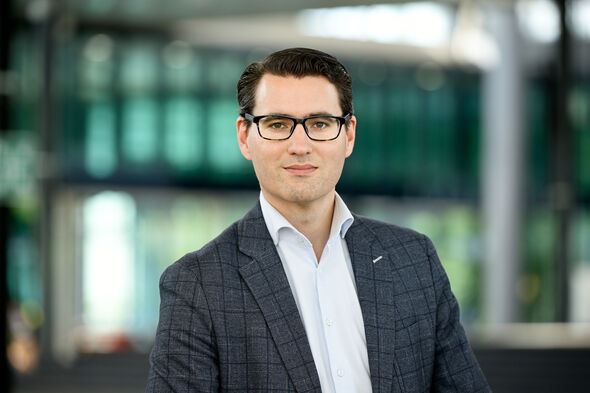
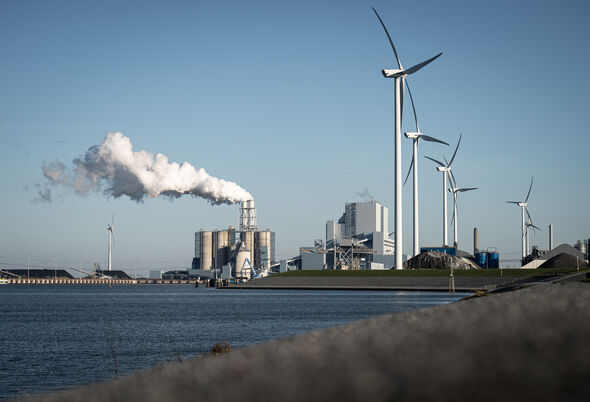
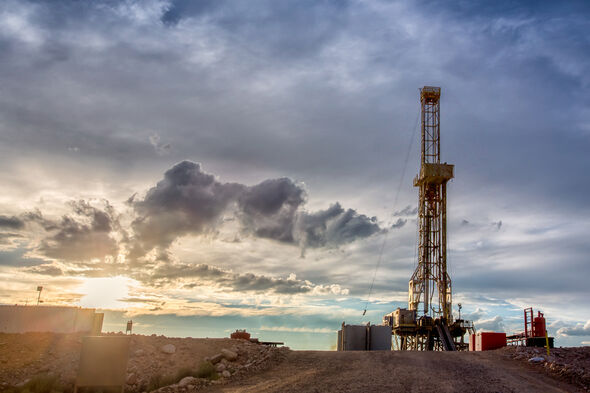
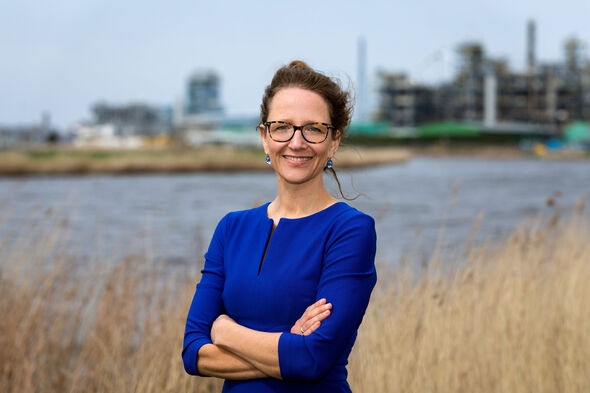
Discussion